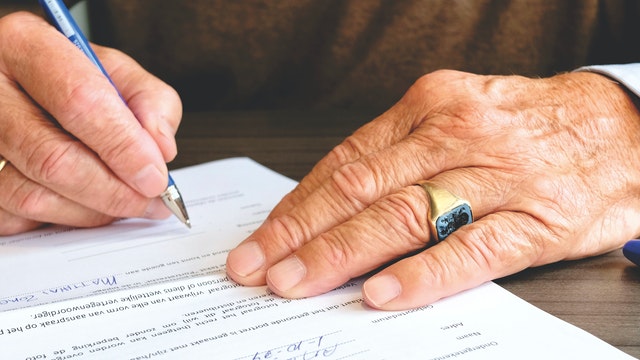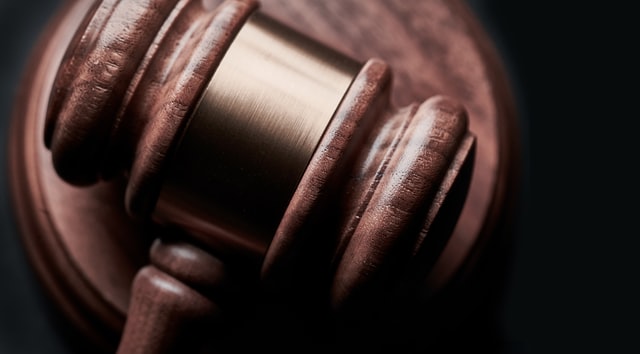
Executor of Will Checklist
This article has been reviewed by a practicing attorney in 2020.
This content is not intended to be a substitute for professional legal advice. Always seek the advice of an attorney or another qualified legal professional with any questions you may have regarding your situation.
The duty of an executor of a will goes beyond simply distributing the testator’s property to the will’s beneficiaries. Executors must also dutifully care for and make an accounting of all property within the estate in addition to paying any debts or taxes owed by the estate. Below, we provide an explanation of what an executor is as well as their duties, and a checklist that may help executors carry out these duties.
What is an executor?
An executor is the person or entity the testator names to handle the will and carry out the deceased’s final wishes. An executor is generally a close family member, friend, or attorney, and may also be named as a beneficiary in the will.
Being named executor of a will is both an honor and a commitment. While this appointment demonstrates that the testator trusts the executor to act truthfully, it is also an obligation because administering a will and probating a testator’s estate can be a lengthy and time-consuming process. For this reason, state laws provide for the payment of executors, however many do not request to be compensated because they are close friends or family.
Executor’s fiduciary duty
An executor has a fiduciary duty to act in the best interest of the estate and its beneficiaries. A fiduciary duty arises when one person or entity accepts responsibility to act in the best interest of another person or entity. This duty exists in law and an executor who has been found to violate it may be sued for breaching it. Executors are most commonly sued for breaching their fiduciary duty when they (1) act in their own interests, or (2) allow assets in the estate to decay.
What to do after the testator passes
An executor’s duty generally begins upon the testator’s death. When a testator dies, they become known as the “decedent.” It is the duty of an executor to not only carry out the decedent’s wishes from their will, but to also completely settle the estate, generally with a probate court. Remember, in so doing, the executor is required to act in the best interest of the estate and its beneficiaries.
12 helpful steps for an executor
Below we provide an overview of 12 helpful steps an executor may need to take to manage a decedent’s estate. Many of the suggested steps would likely be handled simultaneously:
1. Continue to manage decedent’s household
After the testator dies, the executor should continue to manage the decedent’s household. This can include taking care of any pets or dependents as well as paying bills and collecting the decedent’s mail. If the executor pays for household expenses out of their pocket, they should keep receipts and a spreadsheet detailing these payments for future reimbursement.
2. Gather important documents
During this time, the executor should also locate the original will and any other estate planning documents the deceased may have executed such as a trust or transfer on death deed. The executor should read and understand each of these documents to understand who the decedent has named as beneficiaries.
It is also important that the executor have multiple originals of the deceased’s death certificate. As the executor, you should automatically be entitled to the death certificate, which you can order through the state or county records office.
The executor will also want to collect the following of the decedent’s: latest bank account statements, investment statements, any deeds to real property, the decedent’s birth certificate, marriage certificate or divorce decree (if applicable), Social Security information, life insurance policies, certificates of title to vehicles and keys to any safety deposit boxes or home safes.
Tip: Because so many people receive electronic statements in today’s world, it may be a good idea for the testator to create a document that has all of their login and password information in it. The testator should keep this document with the will and let the executor know of its existence. This would make it easier for the executor to log into the testator’s accounts and receive up to date information upon the testator’s death.
3. Notify financial institutions and government agencies of decedent’s death
The executor should contact all of the decedent’s financial institutions (where the decedent had bank accounts, credit cards, investment accounts, etc.) to inform them of the decedent’s death. The executor should also notify any governmental agencies such as the Social Security Administration, the Department of Veteran’s Affairs, Medicare or Medicaid, or the post office of the same. Finally, the executor should notify any current or former employers of the testator’s death, especially if the testator was receiving a monthly pension or retirement benefit.
4. Represent decedent’s estate in court
An executor will also represent the estate in probate court. To do so, generally, the executor must file the original copy of the will and the death certificate in the local probate court. Many executors hire an attorney to help with this process as it can become quite complicated depending on the estate. After filing these documents with the probate court, the executor will want to ask the court to confirm them as executor and give them “letters testamentary,” which give the executor the power to act on behalf of the estate.
5. Notify will beneficiaries
After the executor files the will in the local probate court and is confirmed as executor, they should send a notice of the probate proceedings to both the beneficiaries in the will and any close relatives that were not named in the will (for example, a surviving spouse and children who would have been entitled to the testator’s property had there not been a will).
6. Establish an estate bank account
To better manage an estate, it would be wise for the executor to set up an estate bank account to hold any money that is owed to the deceased, for example paychecks, stock dividends, income from rental properties, etc. The executor should also use this account to pay any bills (such as mortgages, utilities, car notes) that still need to be paid throughout the probate process. Establishing a separate bank account for the estate will help the executor keep his or her finances separate from the estates, decreasing the chance of any commingling of funds or any breaches of the executor’s fiduciary duty.
7. Pay debts and notify decedent’s creditors
The executor of a will is not only required to distribute the decedent’s property to will beneficiaries, but they must also pay the decedent’s debts. An executor may voluntarily pay a decedent’s debts, but they must also notify creditors of the decedent’s death and the probate proceeding. This gives creditors the opportunity to file a claim against the estate for any bills or obligations that the executor has not voluntarily paid. The executor determines if a creditor’s claim is valid.
8. Inventory the decedent’s estate
One of the most important duties of an executor is to create an inventory of the decedent’s property. Depending on the size of the estate, this may be a very long and arduous task. An executor should look in both physical and electronic locations to find assets and then create a spreadsheet that lists every piece of property found. This will be a useful reference tool for the executor who will eventually be required to file a formal inventory with the probate court. What is required of a formal inventory varies by state.
Examples of property for an inventory include:
- Tangible real estate such as the decedent’s home or any rental or investment properties—the executor should locate all real estate deeds, mortgages, leases, and tax information.
- Tangible personal property such as the decedent’s cars (or any other vehicle such as a motorcycle or boat), household items such as furniture, or other personal items such as fine jewelry, artwork, or other contents within the decedent’s home.
- Intangible financial assets such as stocks, bonds, bank accounts, IRAs, CDs, cash, mortgages, promissory notes, pensions, life insurance, etc.
When the executor has a complete inventory, they will also need to establish a valuation for each asset, according to the asset’s fair market value. In some instances, the executor will need to retain appraisers for the more complicated items.
9. Pay estate’s taxes
The executor must ensure that the estate files its income tax returns from the first of the current year through the date of the decedent’s death. Depending on the size of the estate, it may owe state and/or federal taxes. The executor should ensure these are paid.
10. Distribute assets
Once debts have been paid and there has been an accounting of the estate, the executor will distribute the estate’s assets in accordance with the provisions in the will.
11. Close the estate
When the debts and taxes from the estate have been paid and when all property has been distributed to beneficiaries, the executor may ask the probate court to formally close the estate.
Get estate executor help: If you’re looking to ease the burden of being an executor of an estate check out EstateExec.
12. Consulting an Attorney
Depending on the size of the testator’s estate, probating a will can be complicated and time consuming. It is always best to consult an attorney in your area if you are the executor of a will to better understand your state’s laws and procedures regarding probating a will.
Final thoughts
In conclusion, the role of an executor comes with significant responsibilities and legal obligations. It demands a strong understanding of the decedent’s assets and requires careful management and execution of tasks ranging from handling court matters to managing finances and distributing assets. Keep in mind that serving as an executor can turn out to be a substantial commitment depending on the size and complexity of the decedent’s estate. Therefore, consulting an attorney and seeking professional assistance can be crucial to ensure the process is carried out effectively and accurately. No matter the size of the estate, the key lies in adhering to the wishes of the deceased, and above all, fulfilling the statutorily-imposed fiduciary duties to the estate and its beneficiaries.
Related Articles

Burial Insurance: Everything You Need to Know
If you have an elderly loved one, you may be considering burial insurance. This is a type of life insurance that specifically covers final expenses. A 2020 report on life insurance policyholders found that 84% of those that buy life insurance, do so to cover end-of-life expenses. Considering that the majority of people who have […]

Where There’s a Will, There’s a Plan
This article has been reviewed by a practicing attorney in 2020 This content is not intended to be a substitute for professional legal advice. Always seek the advice of an attorney or another qualified legal professional with any questions you may have regarding your situation. There are many types of estate planning documents you can […]

Elder Law Attorneys: A Comprehensive Guide
If you are someone who is taking care of a senior or has an elderly loved one, you should consider working with an elder law attorney. Though you may not expect it, individuals begin to face new and more complex legal concerns as they get older. Actions that may have seemed trivial when they were […]

Trusts: What is One and How do They Work?
Estate planning is an integral part of planning for seniors. There are many different forms of estate planning and various tools available to use. One estate planning tool that can be helpful for many seniors is a trust. They can serve many different purposes and are a great estate planning tool, regardless of your estate’s […]

Understanding Trust Beneficiaries
This article has been reviewed by a practicing attorney in 2020 This content is not intended to be a substitute for professional legal advice. Always seek the advice of an attorney or another qualified legal professional with any questions you may have regarding your situation. Trusts are common estate planning instruments used to manage and […]

Transfer on Death Deeds: A Complete Overview
Deciding how you want your assets and estate distributed on your death can be an emotional task. Analyzing the legal mechanisms to accomplish this task can be overwhelming and exhausting. You want to be sure your assets will be distributed in accordance with your final wishes, but you also do not want to burden your […]